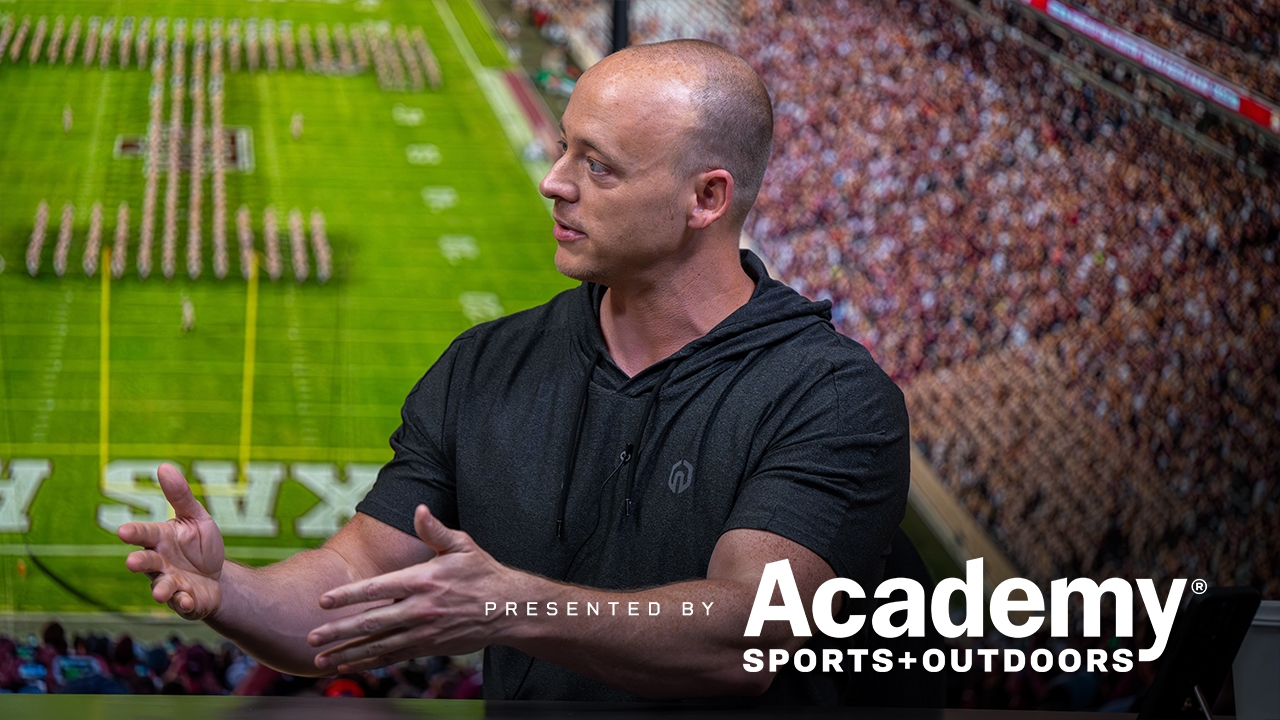In the midst of SEC Spring Meetings, college football analyst Josh Pate joined us on Tuesday's edition of TexAgs Live to discuss the current structure of the conference and the scrutiny that Greg Sankey and the committee are facing regarding the current schedule structure.
Key notes from Josh Pate interview
- I think Greg Sankey is aware of what’s said about him. He is sharp and strategic. I never heard him say this, and I was close to saying that if someone thinks they are better at this job, have at it. You don't have to defend him and point out obvious points. He answers to university presidents. He's the face of leagues and authorities, and other league leadership looks at him that way. Sankey looks at it and watches the public talk about college athletics wrong. He listens to the media and talks to them. I think a lot of times the conversation is wide. What he tells you is that it is a mile wide and a mile deep. Everyone thinks they have the answers, but to scope the issues, you would either get fired or realize all the simple solutions don't fly on Twitter. It's a hard job. He gets compensated.
- You don't have to defend him, but I do believe him. They are looking for sub-sensitive and progressive changes, not political, but progress to make things better today and tomorrow. I think there was a shortage of solutions. Yesterday, he said, even at the conference level, you have a lot of people talking about what's wrong. He's looking for solutions. Yet, I see complaints from people who can offer solutions.
- I can sit here and talk all day about how the SEC has played a part in worsening college athletics, but I understand the stance they take all the time. The nine-game conference schedule is one of them. I won't move to it unless the strength of the schedule is not defined differently, but lit differently. Sankey is right when he said yesterday that the league's schedule in the SEC is properly baked in.
- I spoke with Kalen DeBoer in the spring, generally, about what the biggest differences are. He said I don't have an appreciation for how the league schedules are tough. It rarely hits when you play at Mississippi State or Arkansas, who are not at the top, but they still have nine to 10 future NFL guys and felt it when they played Oklahoma. When you have that kind of talent, if they click, it doesn't matter what kind of record they have.
- Sankey looked at it and said that as long as the team's attitude reflects their record, and as long as they value the record over the schedule, why would we move to nine league games? The SEC is an eight-league tougher conference. When I say that, I would get arguments. People argue they don't like the point. I don't know if I should have movement during the week unless there are assurances.
- I always look at college football pressure as being two different compartments. You have job security pressure and competitive pressure. James Franklin doesn't have job security, but has immense competition in the sense that I think Lane Kiffin has a better team than others. People agree. What it means in the fall is that the expectation level is above what has been achieved. Ole Miss failed and was viewed as a university disappointment. Franklin went to the finale. It's the starting point and view, and I don't disagree with how they feel that way.
- The other part of that, from a prediction standpoint, is a post-spring top 20. Friends of mine thought it was laughable and waited until the other one came out. No. 2 is about “Who is better than Penn State?” Just last year, Notre Dame went to a national title. We are coming off this area where only the SEC was winning. Teams like Notre Dame couldn't do it, and now they can. If a team like Penn State has the best collection, this tells you it's different competitively now. If Penn State doesn't win anything, they don't win anything. I think it's not what has been done in the past, but they belong at the top five in the preseason.
- Ohio State could come out of the gate firing. I think there is a world where I see Ohio State lose by 17 to Texas, and then fast forward to the semifinal. I see a scenario where there's so much newness that it takes until October or November. In the old days, it was too late. I would be surprised if they came out hot out of the gate. It is typical of how the sport works.
- The SEC was the deepest conference last year and again this year. The two best may or may not be in there, but I think individually, like LSU, the SEC is the best in the country. If LSU is not part of it, there's a huge problem. Let's say the SEC is one of the best conferences in the country, and DeBoer goes 8-4. My point is it's the micro, not the macro, of the situation. The SEC can fly high, yet you have major programs that go off in the ditch, probably victimized by the rest of the SEC being good.
- There is no way to balance schedules. I can't afford to do that because of the uniqueness of the sport. I would ask if we can have a better understanding at the end of the year.
